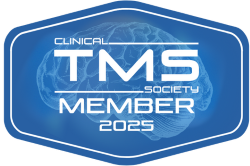
JOIN US! TMS Education Event - Tuesday, April 9th 5:30pm pst - Click to learn more!
ADHD
TMS for ADHD
Adult ADHD is a continuation of the neurodevelopmental disorder commonly identified in childhood, characterized by persistent issues with attention, hyperactivity, and impulsivity. However, in adults, these symptoms often manifest differently, impacting their professional life, relationships, and overall well-being.
Types of ADHD
ADHD is typically categorized into three types, based on the predominant symptomatology:
- Predominantly Inattentive Presentation: Difficulties with attention and focus, such as disorganization and a tendency to be easily distracted, without significant hyperactivity.
- Predominantly Hyperactive-Impulsive Presentation: More evident signs of hyperactivity and impulsivity, with less pronounced issues with attention.
- Combined Presentation: Symptoms of both inattention and hyperactivity-impulsivity are equally present.
Why TMS for ADHD?
Common Symptoms of ADHD
- Inattention and Distractibility: Difficulty sustaining attention in tasks, especially in routine or less engaging activities. Adults with ADHD may get easily distracted by external stimuli or unrelated thoughts, leading to unfinished tasks.
- Disorganization and Time Management Issues: Struggling with organization, prioritizing tasks, and managing time effectively. This can lead to missed deadlines, forgotten meetings, or a general sense of being overwhelmed by daily responsibilities.
- Impulsivity: Making quick decisions without considering the consequences, which can manifest in various aspects of life, including spending habits, driving, or in social interactions.
- Hyperfocus: While often overlooked, some adults with ADHD experience hyperfocus, an intense concentration on activities they find stimulating or rewarding. This can lead to losing track of time and neglecting other important tasks or responsibilities.
- Emotional Dysregulation: Difficulty regulating emotions, leading to quick temper, frustration, mood swings, or feeling easily overwhelmed by emotional situations.
- Restlessness and Difficulty Relaxing: Many adults with ADHD feel an inner restlessness or constant need for activity. They may struggle to relax or engage in leisure activities calmly.
- Procrastination and Avoidance: Tendency to delay starting tasks that require sustained attention or effort, often leading to a cycle of last-minute rushes to meet deadlines.
- Forgetfulness: Regularly forgetting appointments, commitments, deadlines, or misplacing items.
- Difficulty Following Through: Starting projects with enthusiasm but struggling to complete them due to waning interest or distraction by new tasks.
- Relationship Challenges: ADHD can affect personal and professional relationships, often due to misunderstandings related to inattention, forgetfulness, or impulsivity.
- Low Self-Esteem and Self-Doubt: Ongoing struggles with these symptoms can lead to feelings of underachievement, failure, or self-doubt.
Challenges Faced by Adults with ADHD
- Workplace Difficulties: Struggles with organization, meeting deadlines, and maintaining focus can hinder professional growth and productivity.
- Relationship Strains: Impulsivity and inattention can lead to misunderstandings and conflicts in personal relationships.
- Self-Esteem Issues: Chronic feelings of underachievement and failure can affect self-esteem and mental health.
- Managing Daily Life: Routine tasks can be overwhelming, leading to disorganization and stress.
Traditional Treatment for ADHD
- Medication
- Stimulants: Such as methylphenidate and amphetamines, are the most common medications used for treating ADHD. They help increase attention and focus while reducing hyperactive and impulsive behaviors.
- Non-Stimulants: For those who cannot tolerate stimulants, medications like atomoxetine or certain antidepressants might be prescribed.
- Behavioral Therapies
- Behavior Modification: Involves the use of rewards and consequences to change behavior.
- Cognitive Behavioral Therapy (CBT): Helps in managing symptoms by changing thought patterns and improving self-control and self-esteem.
- Lifestyle Adjustments
- Regular Physical Activity: Helps in reducing hyperactivity and improving concentration.
- Healthy Diet: Nutritional strategies that may help in managing symptoms.
- Routine and Structure: Consistent schedules and organized environments can aid in reducing symptoms of ADHD.
How Accelerated TMS Can Help in Treating ADHD
While not a traditional treatment method for ADHD, Accelerated Transcranial Magnetic Stimulation (TMS) is being explored as a potential therapy. TMS involves non-invasive magnetic stimulation of brain regions involved in attention and impulse control.
Potential Benefits of Accelerated TMS for ADHD
- Targeted Brain Stimulation: Directly stimulates areas of the brain associated with attention and executive functioning.
- Enhancing Neuroplasticity: TMS can promote neuroplasticity, the brain's ability to form new neural connections. This can be particularly beneficial in ADHD, as it may help the brain develop pathways that improve focus, attention, and impulse control.
- Reducing Impulsivity and Hyperactivity: By modulating the activity in certain brain areas, TMS might help in managing core symptoms of ADHD such as impulsivity and hyperactivity, leading to improved behavioral control.
- Improving Attention and Concentration: TMS may enhance cognitive functions like sustained attention and concentration, which are typically challenging for individuals with ADHD.
- Non-Pharmacological Alternative: Offers a treatment option for those who may not respond well to, or prefer not to use, medication.
- Minimal Side Effects: TMS is generally well-tolerated, with fewer side effects compared to some ADHD medications.
- Complementary to Other Treatments:
Can be used in conjunction with medication and behavioral therapies for a more comprehensive treatment approach.
What patients are saying
"Desperate and struggling, my therapist recommended TMS. With an open mind and cautious optimism, I tried it. In just five days, my anxiety improved significantly. The clinic staff was fantastic, offering counseling and education on anxiety. The whole experience, including aftercare and follow-up, made a huge difference. I wholeheartedly recommend Accelerated TMS at Kind Health Group. Thank you, Dr. Nanos, and your amazing team"
Chen, Y. H., Liang, S. C., Sun, C. K., Cheng, Y. S., Tzang, R., Chiu, H. J., Wang, M. Y., Cheng, Y. C., & Hung, K. C. (2023). A meta-analysis on the therapeutic efficacy of repetitive transcranial magnetic stimulation for cognitive functions in attention-deficit/hyperactivity disorders. BMC Psychiatry, 23, 756. https://doi.org/10.1186/s12888-023-05261-2
Abstract Summary: This meta-analysis aimed to clarify the therapeutic efficacies of repetitive transcranial magnetic stimulation (rTMS) for improving cognitive functions in patients with attention-deficit/hyperactivity disorder (ADHD). The study analyzed randomized controlled trials (RCTs) that investigated the therapeutic efficacy of rTMS for improving cognitive functions assessed by standardized tasks in patients with ADHD. The meta-analysis included five RCTs with 189 participants and demonstrated that rTMS was more effective for improving sustained attention in patients with ADHD compared with control groups. Secondary analysis also showed that rTMS was more effective for improving processing speed but not for enhancing memory or executive function. The results support the therapeutic efficacy of rTMS for improving sustained attention and processing speed in patients with ADHD. However, the limited available data warrant further studies to verify these findings.
Alyagon, U., Shahar, H., Hadar, A., Barnea-Ygael, N., Lazarovits, A., Shalev, H., & Zangen, A. (2020). Alleviation of ADHD symptoms by non-invasive right prefrontal stimulation is correlated with EEG activity. NeuroImage. Clinical, 26, 102206.
https://doi.org/10.1016/j.nicl.2020.102206
Abstract Summary: The study evaluates the efficacy of targeting the right prefrontal cortex (rPFC) with repetitive transcranial magnetic stimulation (rTMS) to treat clinical symptoms in adults suffering from Attention Deficit Hyperactivity Disorder (ADHD). Given the implication of rPFC abnormality in ADHD neuropathology, the study aimed to modulate neuronal excitability, activity, and plasticity in a non-invasive manner using rTMS. Forty-three drug-free adults with ADHD underwent three weeks of daily high-frequency (18 Hz) stimulation sessions and were randomized into Real, Active Control, or Sham treatment groups. The study found that Real treatment was safe and resulted in significant improvement of symptoms. Additionally, an EEG-based biomarker composed of the Alpha and Low-gamma power was established within the first treatment session, which highly correlated with the magnitude of clinical outcome. The results indicate the safety and effectiveness of rTMS directed to the rPFC for the treatment of adult ADHD patients, suggesting the biomarker reflects the responsiveness of the cortex to this rTMS intervention. The study represents a potential step towards a non-pharmacological treatment for adults with ADHD using EEG-based selection of patients.
Bleich-Cohen, M., Gurevitch, G., & Ash, E. (2021). A functional magnetic resonance imaging investigation of prefrontal cortex deep transcranial magnetic stimulation efficacy in adults with attention deficit/hyperactive disorder: A double blind, randomized clinical trial. NeuroImage: Clinical, 30, 102670.
https://doi.org/10.1016/j.nicl.2021.102670
Abstract Summary: This study examined the clinical, cognitive, and neural effects of deep Transcranial Magnetic Stimulation (dTMS) to the prefrontal cortex in adults with ADHD using functional magnetic resonance imaging (fMRI). The study included 62 adults with ADHD in a randomized, double-blind, placebo-controlled protocol. While primary endpoints did not show improvement, significant improvements were observed in certain sub-scales and increased activations in specific brain regions during working-memory conditions after treatment in the right stimulation group.
If this is a life-threatening emergency, please call 911 or the National Suicide Prevention Lifeline














































